
Find A Professional
More Items From Ergsy search
-

Is filing a formal complaint a good step?
Relevance: 100%
-

Can I contact Ofgem directly for a compensation dispute with Octopus Energy?
Relevance: 27%
-

What can I do if the water company doesn’t respond to my claim?
Relevance: 23%
-

Does filing for bankruptcy stop an eviction?
Relevance: 22%
-

How long does it take to receive a tax refund from HMRC?
Relevance: 21%
-

Is it necessary to complete a final tax return for the deceased?
Relevance: 19%
-

Does Ofgem handle compensation claims directly?
Relevance: 19%
-

What happens to a deceased’s Income Tax if they were employed?
Relevance: 17%
-

Can a landlord evict me for complaining about property conditions?
Relevance: 15%
-

What is the first step to claim money back from my water company?
Relevance: 15%
-

Calls for Greater Transparency in Banking Fees as Complaints Rise
Relevance: 14%
-

What happens if my energy supplier charges above the price cap?
Relevance: 14%
-

What is the role of a water regulator in my claim?
Relevance: 12%
-

What can I do if I believe my eviction is retaliatory?
Relevance: 12%
-

Can I appeal a court's eviction decision?
Relevance: 11%
-

What should I do if I need help managing the tax affairs of the deceased?
Relevance: 11%
-

Can customers dispute unexpected banking fees?
Relevance: 10%
-

How can disputes over banking fees be resolved effectively?
Relevance: 10%
-

Divorce UK (England and Wales) | UK Divorce Process and Overview Explained PART 1 | BlackBeltBarrister
Relevance: 10%
-

What if I've moved since the tax year ended?
Relevance: 10%
-
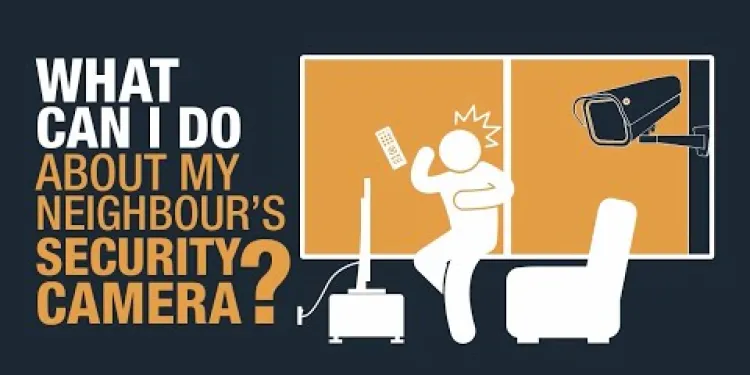
What can I do about my neighbour's security camera?
Relevance: 9%
-

What is the role of an executor in handling tax debts?
Relevance: 9%
-
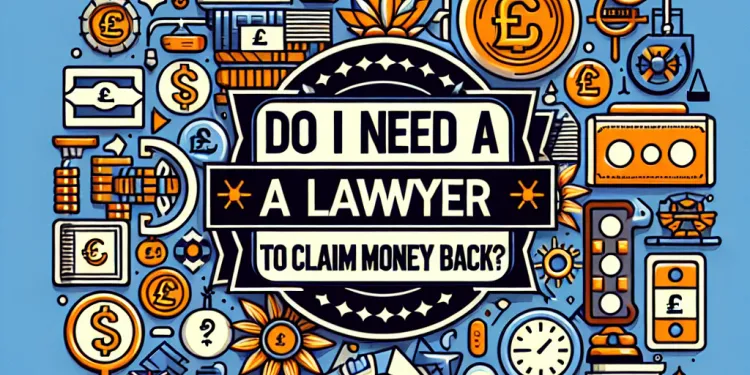
Do I need a lawyer to claim money back?
Relevance: 9%
-

Can customers appeal or discuss the refund amount with their water company?
Relevance: 9%
-
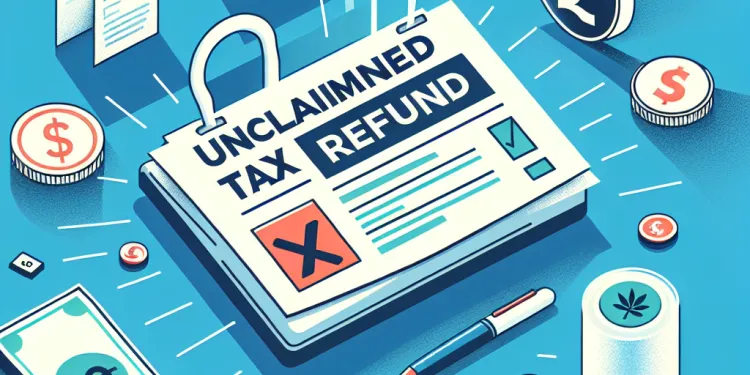
What happens if I do not claim my tax refund?
Relevance: 8%
-

What role does the Information Commissioner’s Office (ICO) play in these disputes?
Relevance: 8%
-

Is there a minimum claim amount?
Relevance: 8%
-

Is there a deadline for making a claim?
Relevance: 8%
-

Do neighbours need to inform me if their cameras record my property?
Relevance: 8%
-

What taxes need to be paid from the deceased’s estate?
Relevance: 8%
-

A Guide to the Divorce Process
Relevance: 8%
-

How to represent yourself in family court in England and Wales
Relevance: 8%
-
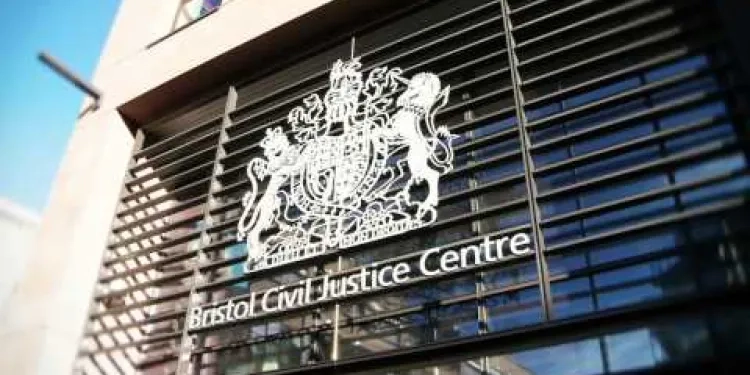
The Family Court without a Lawyer - Video 1 of 3
Relevance: 7%
-

What should I do first if my neighbor's security camera is pointed at my property?
Relevance: 7%
-

Can I receive my tax refund directly into my bank account?
Relevance: 7%
-
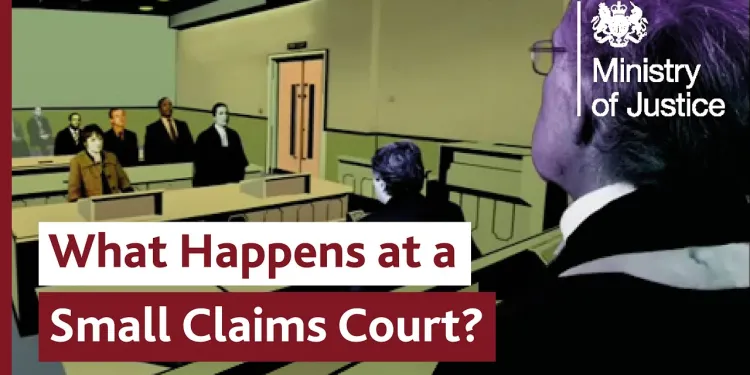
What Happens at Small Claims Court? Making a Court Claim for Money
Relevance: 7%
-

Which body is responsible for enforcing refunds by UK water companies?
Relevance: 7%
-

Can I dispute the compensation amount offered by Octopus Energy?
Relevance: 7%
-

Can an inheritance tax bill be challenged or appealed?
Relevance: 6%
-
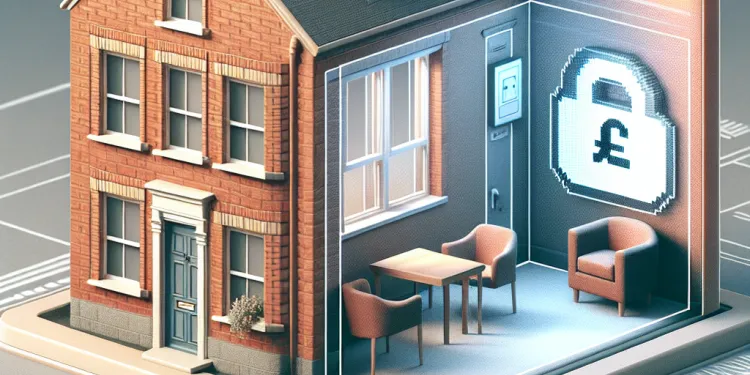
Can a landlord lock me out or remove my belongings to evict me?
Relevance: 6%
Introduction
Filing a formal complaint can be a critical step in addressing grievances in various contexts, such as the workplace, consumer rights, or public services. In the UK, several mechanisms allow individuals to officially express dissatisfaction and seek resolutions. Whether or not filing a formal complaint is a good step can depend on the specific situation, potential outcomes, and personal circumstances.
Understanding the Process
Before deciding to file a formal complaint, it's essential to understand the process involved. In many UK sectors, there are established procedures for lodging complaints. For instance, workplaces often have grievance procedures outlined in company policy. In consumer matters, organizations like the Consumer Ombudsman provide guidance and support. Additionally, public services are overseen by entities such as the Local Government Ombudsman. Familiarity with the correct route and requirements can enhance the chances of a successful resolution.
Potential Benefits
Filing a formal complaint can yield several benefits. For one, it creates an official record of the issue, which can be crucial if the matter escalates. A formal complaint also prompts organizations to take the matter seriously, often leading to thorough investigations or interventions. This can result in obtaining a desirable resolution, such as corrective actions, compensation, or systemic changes. Additionally, filing a complaint can empower individuals by giving them a voice in addressing injustices or breaches of rights.
Considerations and Risks
Despite the benefits, there are considerations and potential risks associated with filing a formal complaint. The process can be time-consuming and emotionally draining, especially if the outcome is not favorable. There is also the possibility of strained relationships, particularly in workplace scenarios. Moreover, not every complaint will result in a satisfactory outcome, and some individuals may find that informal resolution efforts, such as direct communication or mediation, might be more effective initially.
When to File a Complaint
Understanding when to escalate an issue to a formal complaint is crucial. If initial attempts to resolve the issue informally have failed, or if the problem is severe, such as discrimination or a significant legal breach, formal action might be necessary. Additionally, when the matter concerns public interest or ongoing issues affecting a wider group, formal complaints can play a vital role in driving change.
Conclusion
Deciding whether to file a formal complaint is a significant decision that should be considered carefully. Evaluating the potential benefits and risks, understanding the specific processes involved, and considering alternative resolution methods can help individuals make an informed choice. In the UK, while formal complaints are a powerful tool, their success often hinges on how they are pursued and the context in which they are filed.
Introduction
Making an official complaint can help fix problems in places like work, shopping, or public services. In the UK, there are ways to let people know you are unhappy and want a solution. Thinking about whether making a complaint is a good idea depends on your situation and what might happen.
Understanding the Process
Before you make an official complaint, it's important to know how it works. In the UK, there are rules for how to complain. For example, at work, there are often rules in the company guide. If you have a problem with buying something, there are people like the Consumer Ombudsman who can help. Public services have a team like the Local Government Ombudsman who look at complaints. Knowing the right steps can help you get a good outcome.
Potential Benefits
Making an official complaint can be helpful. It creates a record of the problem, which is important if things get worse later. It also makes organizations pay attention and often leads to them looking into the problem. This might end with a good result, like fixing the problem, getting money back, or making big changes. Complaining can also help you feel stronger by speaking up when something is wrong.
Considerations and Risks
There are things to think about before complaining. It can take a long time and be tiring, especially if things don’t go well. It might also make relationships difficult, like at work. Not all complaints get a good result, and sometimes talking directly to people or using mediation can work better.
When to File a Complaint
Knowing when to make a complaint is very important. If talking hasn’t fixed the problem or if the issue is serious, like discrimination, an official complaint can help. Official complaints are also useful if the problem affects a lot of people or is very serious.
Conclusion
Deciding to make an official complaint is a big choice. You need to think about the good and bad sides, know how the process works, and think about other ways to solve the problem. In the UK, official complaints can work well, but it depends on how and when you make them.
Frequently Asked Questions
What is a formal complaint?
A formal complaint is an official statement expressing dissatisfaction or alleging misbehavior, typically submitted through a prescribed process.
When should I file a formal complaint?
You should file a formal complaint when informal resolutions have failed, the issue is serious, or when it's necessary to document the problem officially.
What are the benefits of filing a formal complaint?
Filing a formal complaint can lead to a thorough investigation, provide official documentation, and potentially result in corrective actions.
Are there any risks associated with filing a formal complaint?
Yes, risks can include potential retaliation, worsening of relationships, and the stress of a formal process.
How does filing a formal complaint impact my case?
It can lead to a structured review and resolution process but can also make the issue public and involve multiple parties.
What is the process for filing a formal complaint?
The process generally involves submitting a written statement to the appropriate authority, followed by an investigation and decision-making.
What information is needed to file a formal complaint?
You typically need details of the incident, evidence, names of involved parties, and specific violations or harms suffered.
Can I withdraw a formal complaint once it is filed?
Yes, but the ability to withdraw may depend on the organization's policies and the stage of the investigation.
Who can assist me with filing a formal complaint?
HR professionals, legal advisors, or designated compliance officers can assist with filing a formal complaint.
What are the alternatives to filing a formal complaint?
Alternatives include informal discussions, mediation, or seeking advice from a mentor or peer.
What happens after I file a formal complaint?
An investigation is initiated, evidence is gathered, and a resolution process is undertaken, usually followed by a formal decision.
How long does the investigation of a formal complaint take?
The duration varies depending on the complexity of the case and organizational policies, but it usually takes several weeks to months.
Will filing a formal complaint guarantee a favorable outcome?
Not necessarily, as outcomes depend on the evidence, findings, and procedural fairness.
What if my complaint is not resolved to my satisfaction?
You may be able to appeal the decision or seek further action through legal or higher-level institutional channels.
Is confidentiality maintained during the formal complaint process?
Organizations strive to maintain confidentiality, but complete privacy cannot be guaranteed due to the nature of investigations.
Can I file a formal complaint anonymously?
Some organizations allow anonymous complaints, but they may be harder to investigate and resolve without personal accountability.
What are the possible outcomes of a formal complaint?
Outcomes can range from resolution and corrective action to dismissal of the complaint if unfounded.
Will I face retaliation for filing a formal complaint?
Organizations are legally required to prevent retaliation, but it is important to be aware and report any retaliatory actions.
Can I file a formal complaint on behalf of someone else?
Generally, you can if the party is unable, but it is often best done with their permission and involvement.
How can I prepare for filing a formal complaint?
Gather all necessary documentation, understand the policies and procedures, and seek advice if needed to strengthen your case.
What is a formal complaint?
A formal complaint is when you tell someone in charge that you are unhappy about something. It's a way to let them know something is wrong, like if someone was rude to you or if something is broken.
If you want help with a formal complaint, you can:
- Ask a friend or family to help you write it down.
- Use simple words to say what happened.
- Tell someone that works there about the problem.
A formal complaint is when you tell someone official that you are unhappy or upset about something. You usually have to tell them in a special way that they ask for.
When should I make a complaint?
Here is when you can make a complaint:
- If something unfair happens to you.
- If someone breaks the rules.
- If you are not treated nicely.
Some tools can help you:
- Ask someone you trust to help you.
- Write down what happened.
- Use simple words to explain your problem.
You should make a formal complaint when trying to solve it informally didn’t work, when the problem is serious, or when you need to keep a record of the problem.
Why is it good to make a formal complaint?
When you make a formal complaint, it means you tell someone in charge about a problem. This can help them look into the problem carefully. They will write down what you said. Because of your complaint, they might be able to fix the problem.
Is it safe to make a formal complaint?
Yes, there can be problems. People might get upset, friendships could get worse, and dealing with formal steps can be very stressful.
What happens when I make a formal complaint?
When you talk about a problem, it can help fix it step by step. But it might also make the problem known to more people and involve many others in solving it.
How do you make a formal complaint?
First, you need to write a letter and give it to the right person or group. Then, they will look into it and decide what to do.
What do you need to make a complaint?
If you want to tell someone about a problem, you need to do a few things:
- Write down what happened.
- Say who was involved.
- Include where and when it happened.
- Keep any papers or messages that can help explain.
You might want to ask someone you trust to help you.
You usually need to know what happened, any proof you have, who was there, and what rules were broken or how people got hurt.
Can I take back a complaint after I send it in?
Yes, you can take back a complaint after you send it.
If you need help, you can ask a support person or use a speaking tool that reads the text for you.
Yes, you can take back your report. But it might depend on the rules of the organization and how far they are in checking what happened.
Who can help me make a complaint?
You can ask for help from HR people, lawyers, or special officers who know the rules to make a formal complaint.
What else can you do instead of making a formal complaint?
You can try talking with someone in a friendly way, asking a mediator for help, or getting advice from a mentor or friend.
What happens after I make a formal complaint?
Here is what will happen:
- You will get a paper saying we got your complaint.
- Someone will look at what you said.
- They might ask you some questions.
- They will try to find out what happened.
- You will know what they decide.
Tools and tips to help:
- Ask someone you trust to help you read.
- Use a ruler to keep your place when reading.
- Take your time and read slowly.
A check-up starts. People collect information and try to solve the problem. Then, they make a decision.
How long does it take to look into a complaint?
It can take some time to check a complaint. People will check it carefully to make sure they are fair.
Here are some things they might do:
- Listen to the problem.
- Ask questions if they need to know more.
- Talk to people who can help.
To understand better, you can:
- Ask someone to read with you.
- Use tools that read text out loud.
- Take breaks if it feels hard.
The time it takes can be different for each case. It depends on how hard the case is and the rules of the company. It usually takes a few weeks to a few months.
Here are some things that can help with reading:
- Use a finger or a ruler to follow along the text.
- Read out loud if you can. It can help you understand better.
- Ask someone to help you if you get stuck.
If I make a complaint, will I definitely get what I want?
No, not always. What happens depends on proof, facts, and being fair.
What can I do if my problem is not fixed?
If your problem is not fixed, you can ask for help again. You might want to speak to someone else.
Here are some things you can try:
- Write down why you are still not happy.
- Ask a friend or family member to help you explain.
- Use pictures or drawings to show what you mean.
It is okay to ask for help again if you need to.
You might be able to ask for a change in the decision. You can also get help from a lawyer or ask someone in charge at a higher level to look at it again.
Is your information kept secret when you make a formal complaint?
Organizations try to keep things secret. But, they can't promise full privacy because of how investigations work.
Can I make a complaint without saying my name?
Yes, you can. If you want to tell us about a problem, but don't want to tell us who you are, that is okay.
It might help to write down what happened and how you feel. This can make it easier to explain the problem.
If you find it hard to write, you can ask someone to help you. This could be a friend, a family member, or someone you trust.
Some places let you make a complaint without saying who you are. But it's harder to look into and fix these complaints because no one takes responsibility.
What can happen after you make a formal complaint?
The results could be different. Sometimes the problem gets fixed and someone takes action to make it right. Other times, if there is no real problem, the complaint might be ignored or thrown away.
Will I get in trouble for making a complaint?
If you tell someone there is a problem, they should not be mean to you because of it. You have the right to speak up.
If you are worried about this, you can:
- Talk to someone you trust before making a complaint. They can help you.
- Write down what happens, so you have a record.
- Ask for help from a grown-up, like a teacher or a support worker.
Organizations must follow rules to stop unfair treatment after someone speaks up. It is important to notice and tell someone if you see unfair treatment happening.
Can I make a complaint for someone else?
Yes, you can help someone by making a complaint for them. Here is how you can do it:
- Talk to the person you want to help. Make sure they agree and want you to help them.
- Write down what happened. Be clear and simple with your words.
- Check if you need any special forms. Sometimes, you might need to fill out a form to help them.
- Feel free to ask a friend or an adult for help if you find it hard.
- Use tools like a computer or phone to type the complaint if writing is hard for you.
You can usually help if the person can't do it, but it is better if they say it's okay and help with it.
How can I get ready to make a formal complaint?
Get all the important papers you need. Learn the rules and steps. Ask for help if you are unsure. This will make your case stronger.
Useful Links
- Ergsy carfully checks the information in the videos we provide here.
- Videos shown by Youtube after a video has completed, have NOT been reviewed by ERGSY.
- To view, click the arrow in centre of video.
- Most of the videos you find here will have subtitles and/or closed captions available.
- You may need to turn these on, and choose your preferred language.
- Go to the video you'd like to watch.
- If closed captions (CC) are available, settings will be visible on the bottom right of the video player.
- To turn on Captions, click settings .
- To turn off Captions, click settings again.
More Items From Ergsy search
-

Is filing a formal complaint a good step?
Relevance: 100%
-

Can I contact Ofgem directly for a compensation dispute with Octopus Energy?
Relevance: 27%
-

What can I do if the water company doesn’t respond to my claim?
Relevance: 23%
-

Does filing for bankruptcy stop an eviction?
Relevance: 22%
-

How long does it take to receive a tax refund from HMRC?
Relevance: 21%
-

Is it necessary to complete a final tax return for the deceased?
Relevance: 19%
-

Does Ofgem handle compensation claims directly?
Relevance: 19%
-

What happens to a deceased’s Income Tax if they were employed?
Relevance: 17%
-

Can a landlord evict me for complaining about property conditions?
Relevance: 15%
-

What is the first step to claim money back from my water company?
Relevance: 15%
-

Calls for Greater Transparency in Banking Fees as Complaints Rise
Relevance: 14%
-

What happens if my energy supplier charges above the price cap?
Relevance: 14%
-

What is the role of a water regulator in my claim?
Relevance: 12%
-

What can I do if I believe my eviction is retaliatory?
Relevance: 12%
-

Can I appeal a court's eviction decision?
Relevance: 11%
-

What should I do if I need help managing the tax affairs of the deceased?
Relevance: 11%
-

Can customers dispute unexpected banking fees?
Relevance: 10%
-

How can disputes over banking fees be resolved effectively?
Relevance: 10%
-

Divorce UK (England and Wales) | UK Divorce Process and Overview Explained PART 1 | BlackBeltBarrister
Relevance: 10%
-

What if I've moved since the tax year ended?
Relevance: 10%
-

What can I do about my neighbour's security camera?
Relevance: 9%
-

What is the role of an executor in handling tax debts?
Relevance: 9%
-

Do I need a lawyer to claim money back?
Relevance: 9%
-

Can customers appeal or discuss the refund amount with their water company?
Relevance: 9%
-

What happens if I do not claim my tax refund?
Relevance: 8%
-

What role does the Information Commissioner’s Office (ICO) play in these disputes?
Relevance: 8%
-

Is there a minimum claim amount?
Relevance: 8%
-

Is there a deadline for making a claim?
Relevance: 8%
-

Do neighbours need to inform me if their cameras record my property?
Relevance: 8%
-

What taxes need to be paid from the deceased’s estate?
Relevance: 8%
-

A Guide to the Divorce Process
Relevance: 8%
-

How to represent yourself in family court in England and Wales
Relevance: 8%
-

The Family Court without a Lawyer - Video 1 of 3
Relevance: 7%
-

What should I do first if my neighbor's security camera is pointed at my property?
Relevance: 7%
-

Can I receive my tax refund directly into my bank account?
Relevance: 7%
-

What Happens at Small Claims Court? Making a Court Claim for Money
Relevance: 7%
-

Which body is responsible for enforcing refunds by UK water companies?
Relevance: 7%
-

Can I dispute the compensation amount offered by Octopus Energy?
Relevance: 7%
-

Can an inheritance tax bill be challenged or appealed?
Relevance: 6%
-

Can a landlord lock me out or remove my belongings to evict me?
Relevance: 6%